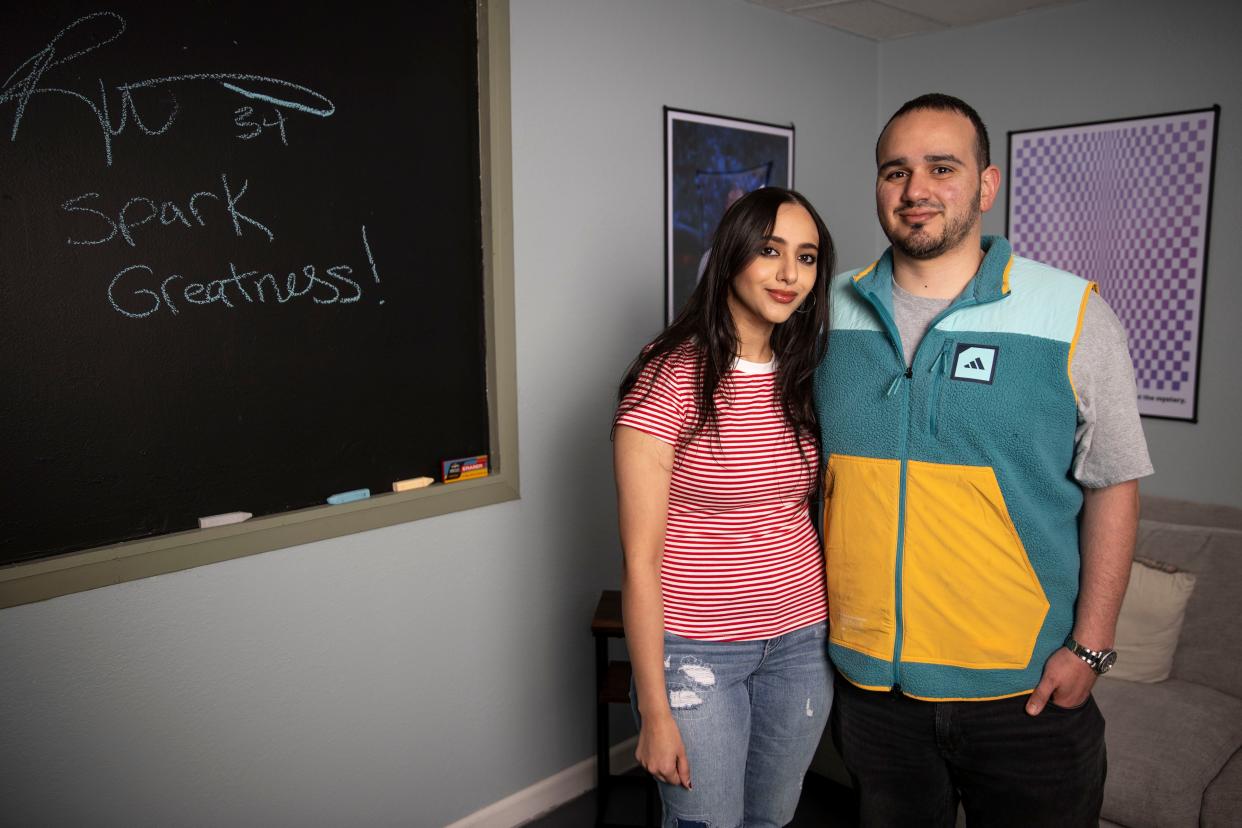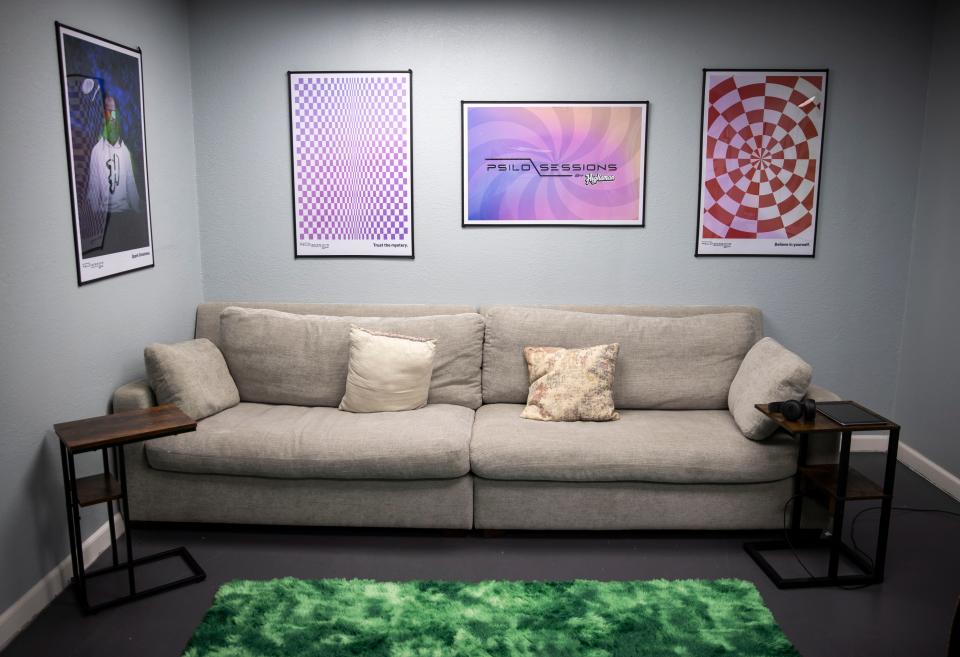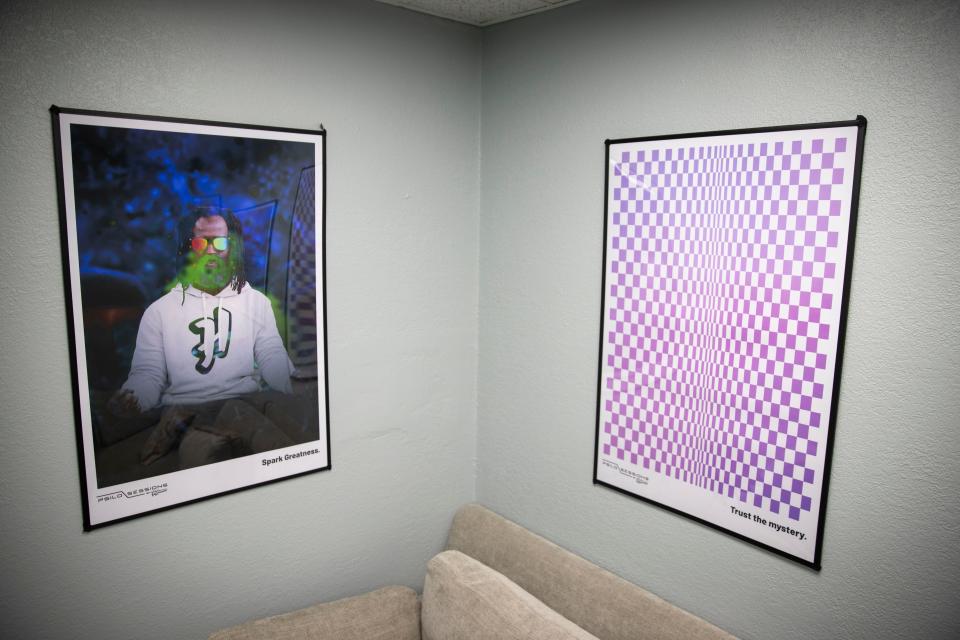Couple opens The Psilocybin Center, Salem's first licensed psychedelic mushroom facility

Husband and wife Sammy Kahuk and Dina Odeh have opened Salem’s first psilocybin service center, and a second location is being licensed.
The Psilocybin Center at 2585 State St. offers personalized “psychedelic mushrooms” sessions to anyone over the age of 21 for behavioral or physical health conditions or for spiritual or recreational purposes.
Kahuk and Odeh are licensed facilitators who said they help clients make decide what session is right for them.
Oregon was the first state to legalize therapeutic, supervised use of psilocybin with the passage of Ballot Measure 109 in 2020.
“When we found out that Oregon was legalizing psilocybin, it rung a bell with us like, hey, we can make a really big difference and we can provide a tool to the community,” Kahuk said.
There are 27 licensed psilocybin service centers and 326 licensed facilitators in Oregon as of May 2024, according to the Oregon Health Authority.
A shared passion for natural medicine
Psilocybin historically has been used by Indigenous communities for spiritual and ceremonial purposes such as in healing rituals and religious ceremonies.
Kahuk and Odeh have had a shared interest in natural medicine since they met. They opened their first business after getting married in 2015 — a CBD company in Florida where they made products by infusing traditional Chinese herbal recipes with CBD.
In 2018, they moved to Oregon to enter the cannabis industry. They own Hall of Strains, a cannabis dispensary in Salem, and a small-batch, indoor cannabis farm in Eugene.

Psilocybin is another way for them to make an impact in the community and help people access natural medicinal remedies, Kahuk said.
They value the holistic approach of natural medicines because they feel that, while beneficial, pharmaceuticals do not always meet everyone's needs, he said.
"We want to build a community around this," Odeh said. "We want, more than just to help people, to have people feel comfortable and safe enough in this space to want to hopefully get over that trauma or whatever it is they are dealing with."
What to expect from psilocybin services
Psilocybin is a naturally occurring psychedelic compound found in more than 200 species of mushrooms. Oregon manufacturers can only cultivate, manufacture or possess fruiting bodies of the fungi species psilocybe cubensis and psilocybin products derived from psilocybe cubensis, due to the amount of research on this mushroom.
The first session at the Psilocybin Center is 1 hour, and clients get to choose the session room and whether they are more comfortable with a male or female facilitator. There is a facilitator in the room with the client and another on the premises as a backup.
"Our main thing, in order for them to have the best journey as possible, is making sure this setting is good for them," said Odeh. "You want them to go in with a comfortable space."

The 12 rooms at the State Street Psilocybin Center vary in size and design. All rooms have psychedelic artwork, lounge chairs, adjustable lights, noise cancelling headphones, iPads, art supplies, weighted blankets and journals.
Much of the art at The Psilocybin Center is designed by local psychedelic and abstract artist Brett Woods.
Psilocybin must be self-administered and is available in capsules, as mushrooms or in alternative forms such as chocolates or teas.
Kahuk or Odeh are present during sessions as a safety net for clients but said they do not influence the clients' choices or experiences. Facilitators can speak when spoken to, and if a client asks, provide physical touch such as hand holding and patting on the shoulder as long as the client signed the consent to touch form.
After a session is over, Kahuk and Odeh offer clients tea and a place to relax until they are ready to leave with prearranged transportation.
Sydney Wyatt covers healthcare inequities in the Mid-Willamette Valley for the Statesman Journal. Send comments, questions, and tips to her at SWyatt@gannett.com or (503) 399-6613
The Statesman Journal’s coverage of health care inequities is funded in part by the M.J. Murdock Charitable Trust, which seeks to strengthen the cultural, social, educational, and spiritual base of the Pacific Northwest through capacity-building investments in the nonprofit sector.
This article originally appeared on Salem Statesman Journal: Salem psilocybin center provides 'magic mushroom' experience

